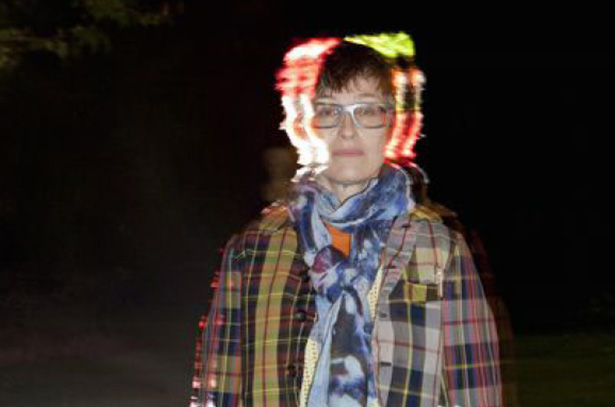
Pipilotti Rist
Pipirotti List
30 March - 19 May 2001
Zürich
Installation views
About the Artist

Pipilotti Rist
Pipilotti Rist, a pioneer of spatial video art, was born 1962 in Grabs in the Swiss Rhine Valley on the Austrian Border and has been a central figure within the international art scene since the mid-1980s.
Astounding the art world with the energetic exorcistic statement of her now famous single channel videos, such as ‘I’m Not The Girl Who Misses Much,’ 1986 and ‘Pickelporno,’ 1992, her artistic work has co-developed with technical advancements and in playful exploration of its new possibilities to propose footage resembling a collective brain. Through large video projections and digital manipulation, she has developed immersive installations that draw life from slow caressing showers of vivid color tones, like her works ‘Sip My Ocean,’ 1996 or ‘Worry Will Vanish,’ 2014.
For Rist, showing vulnerability is a sign of strength on which she draws for inspiration. With her curious and lavish recordings of nature (to which humans belong as an animal), and her investigative editing, Rist seeks to justify the privileged position we are born with, simply by being human. Her installations and exhibition concepts are expansive, finding within the mind, senses and body the possibility for endless discovery and poetical invention. ‘Pixel Forest,’ 2016, made from 3,000 thousand LEDs hung on strings, resembles a movie screen that has exploded into the room, allowing viewers an immersive walk through 3-dimensional video. As she herself puts it, ‘beside the energy-intensive exploration of the geographical world, pictures, films and sounds have been and are the spaces into which we can escape... The projector is the flamethrower, the space is the vortex and you are the pearl within.’
Since 1984, Rist has had countless solo and group exhibitions, and video screenings worldwide. Her recent solo exhibitions are 'Electric Idyll' at the Fire Station Doha (2024), 'Prickling Goosebumps & A Humming Horizon' at Hauser & Wirth New York and Luhring Augustine Chelsea (2023-24), 'Behind Your Eyelid' at Tai Kwun Hong Kong (2022), ‘Big Heartedness, Be My Neighbor’ at The Geffen Contemporary, MOCA, Museum of Contemporary Art Los Angeles (2021 – 2022), ‘Your Eye Is My Island’ at MoMAK, The National Museum of Modern Art Kyoto and ART TOWER MITO (2021). ‘Åbn min Lysning. Open my Glade’ at Louisiana Museum of Modern Art Humlebæk Denmark (2019), ‘Sip My Ocean’ at the Museum of Contemporary Art Sydney (2017 – 2018), ‘Pixel Forest’ at New Museum New York (2016 – 2017) and ‘Your Saliva is My Diving Suit of the Ocean of Pain’ at Kunsthaus Zürich (2016), all resulted in record-breaking attendance numbers for each institution. A major exhibition is planned for summer 2025 at UCCA Beijing.
Current Exhibitions
1 / 12












